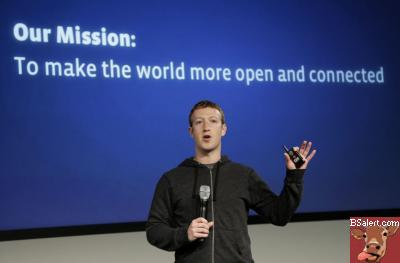|
|
Inside The World Of Phony Benevolence
Posted by Pile
(12690 views) |
  |
 Two news stories have been circulating this week on the Internet that mask more dubious intentions that are worth mentioning. Two news stories have been circulating this week on the Internet that mask more dubious intentions that are worth mentioning. In one story, a famous movie producer is building low-income housing, "To help less-affluent people settle an otherwise upscale area of California" -- how noble.. if that were actually the case. In the second story, one of the richest people in the world is claiming to "bring the Internet to the underpriviledged," but it too, is a scam.... | |
ACT I: George Lucas - Philantropist or vindictive douchebag? It's amazing the cool mean-spirited stuff you can get away with when you're filthy rich, that will have people both applauding and hating you. In this case, George Lucas has finally given up his battle to build the studio he wants in his uber-affluent California community, which has been embroiled in conflict with the other rich residents not wanting his project in their backyard. So Lucas instead turns philantrophist and decides if he can't build his studio, he'll put in a 200+ unit low income housing complex. As you can imagine, this didn't sit well either. Details Act II Internet.org: delivering poor Internet to poor people Mark Zuckerberg's Internet.org project bribes corrupt, non-neutral carriers in poor countries to exempt Facebook and other services of its choosing from their data-caps, giving the world's poorest an Internet that's been radically pruned to a sliver of what the rest of the world gets for free. Internet.org characterizes its goals as charitable and development-oriented. In their framework, poor people either face severe data-caps that limit their access to the Internet to almost nothing, or they get unlimited access to some of the Internet, thanks to Internet.org's largesse. That framework ignores the alternative: using the organization's might and millions to fight corruption in the telco sector, demanding network neutrality for everyone, not just people in rich countries. The idea of "zero-rated" services from non-neutral carriers isn't a new one. In countries like India, it's long been normal for carriers to accept bribes to exempt certain services from data-caps. This phenomenon has been widely studied, and the conclusion is stark: zero-rated services do not contribute to poverty-eradication or other development goals. People in India can join the fight for a neutral Internet there -- over 750,000 people have already signed on. And the sites too are picked in secret under some unknown process. For instance, Facebook chose to offer the distant-second search engine Bing instead of industry-leading Google. Why? Is it rivalry with Google? Or because of Microsoft’s stake in Facebook? And then Facebook’s Zero product features a tiny job site like Babajob instead of the industry-leading Naukri. Why? So that the poor have fewer job options? No one knows. Facebook does not feature YouTube – the largest video site in the world and an immense education resource – but allows its own videos in full. It does not really look like charity any more, does it? Indian journalist Nikhil Pahwa has responded to Zuckerberg’s editorial, by pointing out research after research that shows zero services around the world universally tend to do badly for the people who use them. It all seems to amount to economic racism – exploiting the poor in under-developed parts of the world to become your customers under the guise of some apparent charitable purpose. While offering them a shoddy, stunted version of the real thing. As Vijay Shekhar Sharma, founder of payments app PayTM, puts it: “It’s poor internet for poor people”. In perfect irony, Zuckerberg talks about seeing the wonder of a kid in a remote Indian village discovering the power of the internet. The upshot being that if Zuckerberg – himself a child prodigy – ever was brought up on internet.org, he couldn’t have ever built a Facebook. Details | |
| 1 Article displayed. |


 Bumper Sticker Store
Bumper Sticker Store



